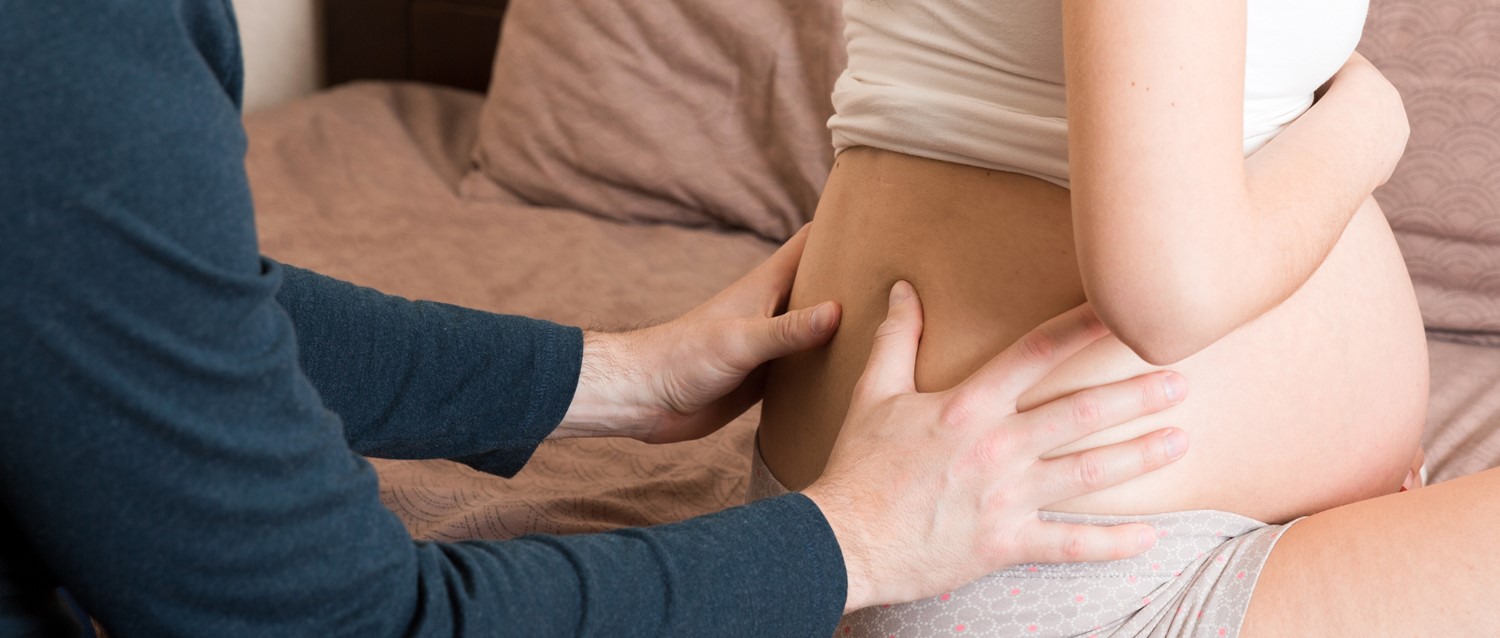
How to feel more confident about childbirth
Peer reviewed by Dr Sarah Jarvis MBE, FRCGPLast updated by Lydia SmithLast updated 21 Jan 2022
Meets Patient’s editorial guidelines
- DownloadDownload
- Share
- Language
- Discussion
- Audio Version
Everyone experiences pregnancy and childbirth differently, but it is common to feel anxious or scared of labour. Often, we only encounter labour and birth on the TV, where it is unrealistically represented as dramatic, excruciating and very medicalised. Unsurprisingly, this can lead many pregnant people to fear the process and question whether they will cope. So how can women feel more confident about childbirth?
In this article:
Video picks for Labour and childbirth
Women's experiences of pregnancy, labour and birth vary widely and it is normal to have mixed feelings and emotions. Some women may be excited about meeting their baby, while others may have struggled through pregnancy and want it to be over. Some women may feel optimistic and positive, but others may be consumed with anxiety and fear.
Continue reading below
Fear of pain
"Some women, but not all, have a generalised fear or some mild anxiety around childbirth," says Counselling Directory member Natasha Crowe, a psychotherapist and hypnobirthing practitioner. Hypnobirthing teaches relaxation techniques such as visualisation, breathing and mindfulness to improve the experience of labour and birth. It also provides practical information about labour and recovery.
"This is often in line with fearing pain and discomfort, the uncertainty of birth and the outcomes. Pain is something that most humans will try to avoid; we see pain and discomfort as not being in our control. After all, humans like to be in control."
Fear of medical procedures
Back to contentsSometimes, fears may be linked to the medicalised nature of hospital births. For example, women may feel anxious about procedures such as inductions, types of pain relief or caesarean sections. "We can often find that people with blood or needle phobias have greater fears too, due to possible procedures while pregnant," says Crowe.
Women may worry about losing control of their bodily functions during labour and birth too. However, it's important to remember that this is nothing to worry about and that doctors, nurses and midwives have seen it all before. Many women also fear birth injuries such as tears to the perineal area.
Continue reading below
Fear of the unknown
Back to contentsOften, fears and anxieties are linked to the fear of the unknown, too. For many women, their only experience of childbirth is on the TV, which often depicts labour and birth as dramatic and dangerous. We also tend to hear negative birth stories more often, as we are more likely to remember and recount traumatic experiences than positive ones.
"The unhelpful language around childbirth in films and books has a huge impact on people. It might be a scary story, witnessing a traumatic birth on screen or a distressing conversation that leaves an impression and creates intense fear," says Crowe.
"This can often happen long before an individual is even considering pregnancy. The information we process can then be catastrophised and emphasised by our imaginations."
Although we can plan for childbirth to some extent - for example, by creating a birth plan or deciding to give birth in a midwife-led facility - we can't control what will happen. This can also lead to stress and anxiety, as we may have to deviate from our ideal birthing scenario. However, staying informed about all eventualities can help women feel more confident and in control of the situation.
Tokophobia
Back to contentsEvery pregnant woman will have some degree of concern about what childbirth will feel like, how they will manage and what might happen. For some, though, the fear can become physically and emotionally disabling and prevent them from having children altogether, even if they want a baby.
"An extreme and severe fear of childbirth may also affect someone's decision on how to give birth to their baby or even avoid conception altogether," says Crowe. "This is called tokophobia; it can happen in any pregnancy and can often develop after a traumatic birth experience."
It is estimated that 14% of women around the world have tokophobia. When this was broken down by severity in a separate study, 75% of women had 'low-to-moderate' fear of childbirth, 25% exhibited high or very high fear and 1.6% were classified as having 'pathological' tokophobia.
A previous traumatic birth, miscarriage, stillbirth or termination of pregnancy, as well as being a first-time parent, pre-existing psychological problems and lack of social support, can all contribute to the development of tokophobia.
Continue reading below
How to feel more confident about childbirth
Back to contentsPregnancy is often portrayed as a time of great joy, but this isn't the experience for all women. It's normal to feel anxious, scared or worried, but there are ways you can feel better and more confident.
Avoid unhelpful depictions of birth
"There are loads of effective ways to support and help work through fears, worries and anxieties," says Crowe. "Avoiding media where you may hear negative unhelpful birth stories is just one example."
Instead of focusing on the negatives, it can help to look for positive birth stories to get a more balanced view of what labour and childbirth can be like. Crowe advises trying to envision what a positive birth experience might look like to you.
"Considering human imagination is our most powerful tool, we can use it to our advantage by envisioning a positive experience for ourselves," she explains. "We should also remember that stories, films, and books need drama and excitement to keep us engaged. These are often a far cry from the reality of the millions of births that happen every day."
Seek out evidence-based information
The more you know about childbirth and what can happen, the more in control you will feel. Things might not always go to plan and you may need medical interventions for the safety of you and your baby, but staying informed can help you feel calmer.
Your midwife can explain any procedures or interventions to you, or answer any questions you might have about labour and birth. In addition, the pregnancy and parental charities Tommy's and the National Childbirth Trust have useful information and advice online, as well as helplines.
Consider hypnobirthing
Hypnobirthing programmes offer practical information about pregnancy, labour and childbirth, as well as relaxation techniques to help women through the childbirth process. It also helps you understand how the mind and body are connected. For example, how hormones such as oxytocin can progress labour and reduce anxiety and stress.
"Hypnobirthing is one of the most effective ways of reducing anxiety," says Crowe. "The programmes can help you learn to notice your fears, help you let go of unnecessary thoughts and prepare for a positive experience regardless of how you give birth. It's about learning to trust in your body as it knows what to do."
Speak to a professional therapist
When preparing for labour it can also help to speak to a professional therapist or counsellor if you have fears surrounding labour and birth. "A therapist can help you reframe unhelpful thoughts and fears to help you feel more in control," says Crowe.
If you are struggling with anxiety, low mood or any other mental health problem, it's important to speak to your GP, who can advise on the best course of action for you. You can self-refer for counselling on the NHS. Additionally, if you are struggling with your mental health in pregnancy, your doctor or midwife may be able to refer you to a perinatal mental health team for specialist support.
Have a strong support network
Pregnancy and birth can be difficult and it's easy to feel isolated. Connecting with other people can really help, particularly if they have had similar experiences to you. Speak to trusted friends, relatives and peers at antenatal support groups about how you feel and any worries you may have about childbirth.
Patient picks for Labour and childbirth

Pregnancy
What you need to know about inducing labour
Induction is a process of artificially kickstarting labour, most commonly used if your baby is overdue. According to the NHS, one in every five labours in the UK are induced, so here's what you need to know if you're offered induction to get the birth moving along.
by Sarah Graham

Pregnancy
What it's like to give birth on Christmas Day
Being of the male persuasion, I’m not technically qualified to offer an opinion on what it’s like to give birth on 25th December, or any other day for that matter. However, as a father who spent Christmas 2013 supporting my wife through the delivery of our first child, I do have a little experience.
by Danny Chadburn
Continue reading below
Article history
The information on this page is peer reviewed by qualified clinicians.
21 Jan 2022 | Latest version
21 Jan 2022 | Originally published

Ask, share, connect.
Browse discussions, ask questions, and share experiences across hundreds of health topics.

Feeling unwell?
Assess your symptoms online for free
Sign up to the Patient newsletter
Your weekly dose of clear, trustworthy health advice - written to help you feel informed, confident and in control.
By subscribing you accept our Privacy Policy. You can unsubscribe at any time. We never sell your data.